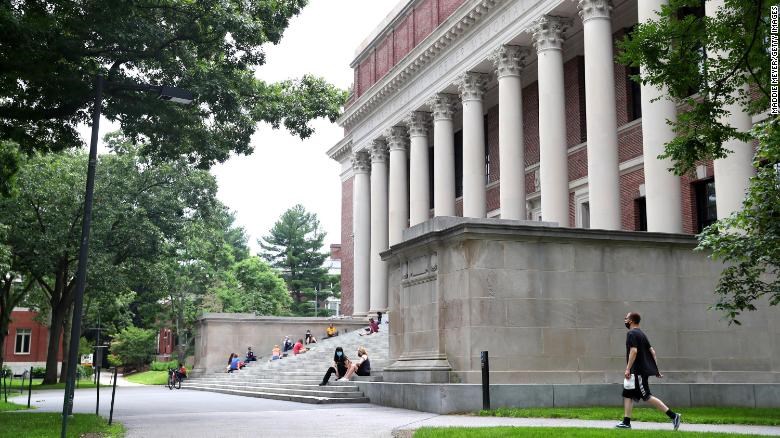Harvard admits to slavery, commits $100M to redress it
Harvard University plans to establish a slavery fund to examine its history with slavery.
-

Harvard commits $100M to redress its complicity with slavery.
Harvard University will spend $100 million to establish a fund to examine and address its "extensive entanglements with slavery," according to University President Lawrence Bacow on Tuesday.
The research titled "Harvard & the Legacy of Slavery" details how the slave trade in the 17th and 18th centuries "comprised a significant component of the New England economy and powerfully affected Harvard University."
"The report makes plain that slavery in America was by no means confined to the South," Bacow said in a message to members of the Harvard community.
"It was embedded in the fabric and the institutions of the North, and it remained legal in Massachusetts until the Supreme Judicial Court ruled it unconstitutional in 1783."
Slavery and racism, according to Bacow, played a key role in Harvard's institutional history, with enslaved individuals working on campus and supporting students, teachers, staff, and University presidents. Their efforts "enriched several benefactors and, eventually, the university."
Back to history
Harvard presidents and others enslaved more than 70 persons for about 150 years, from the university's founding in 1636 until Massachusetts banned slavery in 1865, according to the report, which includes a list of some names in an appendix.
"Enslaved men and women served Harvard presidents and professors and fed and cared for Harvard students," the report said.
The university and its donors benefited from the slave trade into the 19th century, according to the report.
Read next: Will the UK approve removing slavery-linked memorial?
"These profitable financial relationships included, most notably, the beneficence of donors who accumulated their wealth through slave trading; from the labor of enslaved people on plantations in the Caribbean islands and the American South; and from the Northern textile manufacturing industry, supplied with cotton grown by enslaved people held in bondage."
Harvard's financial investments, according to the study, included "loans to Caribbean sugar growers, rum distillers, and plantation suppliers, as well as stakes in cotton manufacture."
According to the findings, university presidents and professors allegedly pushed "race science" and eugenics, as well as conducted harsh "research" on enslaved people.
"I believe we bear a moral responsibility to do what we can to address the persistent corrosive effects of those historical practices on individuals, on Harvard, and our society," the University President wrote.
A slavery fund
The report includes recommendations to redress that legacy "through teaching, research, and service" and the commitment of $100 million for the creation of a legacy of slavery fund.
"Some of these funds will be available for current use, while the balance will be held in an endowment to support this work overtime," Bacow said.
The fund is intended to help with the implementation of the report's recommendations, such as expanding educational opportunities for descendants of enslaved people in the Southern United States and the Caribbean, forming partnerships with historically Black colleges and universities (HBCUs), and identifying and building relationships with direct descendants of enslaved people who worked at Harvard.
The report said the fund signifies the university's acknowledgment "of wrongdoing and a responsibility to undertake a sustained process of repair: financial expenditures are a necessary predicate to and foundation for redress."
Why now?
Harvard's announcement comes as other campuses throughout the country grapple with their role in the abolition of slavery.
"While Harvard does not bear exclusive responsibility for these injustices, and while many members of our community have worked hard to counteract them, Harvard benefited from and in some ways perpetuated practices that were profoundly immoral," Bacow said

 4 Min Read
4 Min Read








